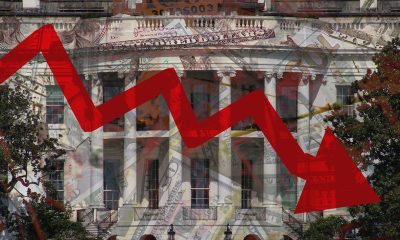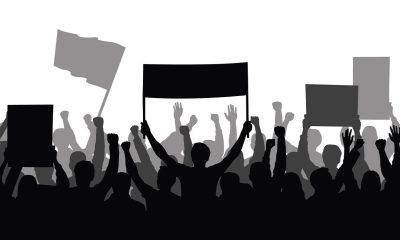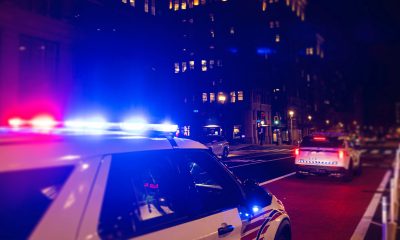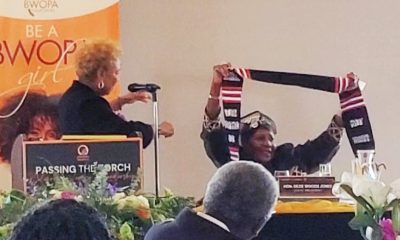City Government
Urban Shield War Games Stir Up Oakland
Energized by images of police armed with military hardware in Ferguson, MO, Bay Area activists are mobilizing to oppose the Urban Shield SWAT war games and firearms expo that is taking place in Oakland this weekend at the downtown Marriott.
Urban Shield is a four-day event that brings together law enforcement agencies from around the world — including Israel, Bahrain, Qatar, Brazil, Guam, South Korea and Singapore.
< p>A two-day trade show on Thursday and Friday features the latest in policing and surveillance technology and is followed by two days of emergency-preparedness training exercises throughout the Bay Area.
The event is billed as a disaster-preparedness exercise and is funded by the Urban Areas Security Initiative, a Department of Homeland Security program that mandates 25 percent of its funding is allocated to counterterrorism activities.
Urban Shield began in Oakland eight years ago and has expanded to Boston, Austin and Dallas.
After weeks of protests in Ferguson, Missouri that followed the police killing of teenager Michael Brown, the militarization of local law enforcement has become a national concern. Prominent images showed police with armored vehicles, assault and sniper rifles and dressed in SWAT uniforms that resembled battle clothing.
Last week, the San Jose Police Department announced it is getting rid of its M-RAP, a military-grade vehicle designed to protect combat soldiers from roadside bombs, citing community concerns over an increasingly militarized police force. The Davis City Council has given its sheriff’s office 60 days to get rid of the city’s M-RAPs.
President Barack Obama has called for a federal review of the 1033 program, which has transferred more than $4 billion of military supplies to local police departments with no oversight.
Organizations endorsing protests against Urban Shield include: Critical Resistance
War Resisters League – Facing Tear Gas, the Bay Area Childcare Collective (BACC),
Iraq Veterans Against the War – San Francisco, Code Pink and Oakland Privacy Working Group.
Among the mayoral candidates taking a position against Urban Shield was Jason “Shake Anderson, who says Mayor Jean Quan is failing to show leadership around police accountability issues.
“Oakland has a long history of police repression,” he said. “Our officers don’t need more extreme training. The city needs leaders who are proactive, who don’t wait to react to the possibility of violence until after something happens.”
According to Councilmember Rebecca Kaplan, bringing the “Urban Shield” weapons expo to Oakland is “an insult to all the important work that so many of us are doing to reduce violence” in the city.
Councilmember Libby Schaaf added, “The militarization of police is dangerous and destroys public trust – the last thing Oakland needs,” she said. “The vendor show connected with the exercise appears to promote this dangerous direction and is ill-suited for Oakland.”
However, Schaaf said, “I recognize that most of the exercises involve emergency response, which is incredibly important and beneficial for this region.”
Civil rights Attorney Dan Siegel said Urban Shield would not be coming to Oakland year after year if city leaders did not vote to help for it.
“Given the city’s disturbing history of brutal force against people of color and peaceful protestors – it is unacceptable to open our arms and welcome agencies that glorify violence, weaponry and militarized responses to the people of Oakland.”
“Last year, Urban Shield was met with community protest – and will be again,” he said. “Oakland residents have sent a clear message: No Urban Shield in Our City.”
For more information on Urban Shield, go to www.urbanshield.org/index.php/2012-urban-shield-exercise/fire-usar-hazmat
Information from groups opposed to Urban Shield can be found at http://bit.ly/susoaklandinfo and http://bit.ly/susmarriott
Activism
Oakland Post: Week of December 31, 2025 – January 6, 2026
The printed Weekly Edition of the Oakland Post: Week of – December 31, 2025 – January 6, 2026

To enlarge your view of this issue, use the slider, magnifying glass icon or full page icon in the lower right corner of the browser window.
Activism
Oakland Post: Week of December 24 – 30, 2025
The printed Weekly Edition of the Oakland Post: Week of – December 24 – 30, 2025

To enlarge your view of this issue, use the slider, magnifying glass icon or full page icon in the lower right corner of the browser window.
Alameda County
Oakland Council Expands Citywide Security Cameras Despite Major Opposition
In a 7-1 vote in favor of the contract, with only District 3 Councilmember Carroll Fife voting no, the Council agreed to maintain its existing network of 291 cameras and add 40 new “pan-tilt-zoom cameras.”

By Post Staff
The Oakland City Council this week approved a $2.25 million contract with Flock Safety for a mass surveillance network of hundreds of security cameras to track vehicles in the city.
In a 7-1 vote in favor of the contract, with only District 3 Councilmember Carroll Fife voting no, the Council agreed to maintain its existing network of 291 cameras and add 40 new “pan-tilt-zoom cameras.”
In recent weeks hundreds of local residents have spoken against the camera system, raising concerns that data will be shared with immigration authorities and other federal agencies at a time when mass surveillance is growing across the country with little regard for individual rights.
The Flock network, supported by the Oakland Police Department, has the backing of residents and councilmembers who see it as an important tool to protect public safety.
“This system makes the Department more efficient as it allows for information related to disruptive/violent criminal activities to be captured … and allows for precise and focused enforcement,” OPD wrote in its proposal to City Council.
According to OPD, police made 232 arrests using data from Flock cameras between July 2024 and November of this year.
Based on the data, police say they recovered 68 guns, and utilizing the countywide system, they have found 1,100 stolen vehicles.
However, Flock’s cameras cast a wide net. The company’s cameras in Oakland last month captured license plate numbers and other information from about 1.4 million vehicles.
Speaking at Tuesday’s Council meeting, Fife was critical of her colleagues for signing a contract with a company that has been in the national spotlight for sharing data with federal agencies.
Flock’s cameras – which are automated license plate readers – have been used in tracking people who have had abortions, monitoring protesters, and aiding in deportation roundups.
“I don’t know how we get up and have several press conferences talking about how we are supportive of a sanctuary city status but then use a vendor that has been shown to have a direct relationship with (the U.S.) Border Control,” she said. “It doesn’t make sense to me.”
Several councilmembers who voted in favor of the contract said they supported the deal as long as some safeguards were written into the Council’s resolution.
“We’re not aiming for perfection,” said District 1 Councilmember Zac Unger. “This is not Orwellian facial recognition technology — that’s prohibited in Oakland. The road forward here is to add as many amendments as we can.”
Amendments passed by the Council prohibit OPD from sharing camera data with any other agencies for the purpose of “criminalizing reproductive or gender affirming healthcare” or for federal immigration enforcement. California state law also prohibits the sharing of license plate reader data with the federal government, and because Oakland’s sanctuary city status, OPD is not allowed to cooperate with immigration authorities.
A former member of Oakland’s Privacy Advisory Commission has sued OPD, alleging that it has violated its own rules around data sharing.
So far, OPD has shared Flock data with 50 other law enforcement agencies.
-

 Bay Area4 weeks ago
Bay Area4 weeks agoPost Salon to Discuss Proposal to Bring Costco to Oakland Community meeting to be held at City Hall, Thursday, Dec. 18
-

 Activism4 weeks ago
Activism4 weeks agoMayor Lee, City Leaders Announce $334 Million Bond Sale for Affordable Housing, Roads, Park Renovations, Libraries and Senior Centers
-

 Activism4 weeks ago
Activism4 weeks agoOakland School Board Grapples with Potential $100 Million Shortfall Next Year
-

 Activism4 weeks ago
Activism4 weeks ago2025 in Review: Seven Questions for Black Women’s Think Tank Founder Kellie Todd Griffin
-

 Arts and Culture4 weeks ago
Arts and Culture4 weeks agoFayeth Gardens Holds 3rd Annual Kwanzaa Celebration at Hayward City Hall on Dec. 28
-

 Advice4 weeks ago
Advice4 weeks agoCOMMENTARY: If You Don’t Want Your ‘Black Card’ Revoked, Watch What You Bring to Holiday Dinners
-

 Activism4 weeks ago
Activism4 weeks agoAnn Lowe: The Quiet Genius of American Couture
-

 Activism3 weeks ago
Activism3 weeks agoDesmond Gumbs — Visionary Founder, Mentor, and Builder of Opportunity






















































